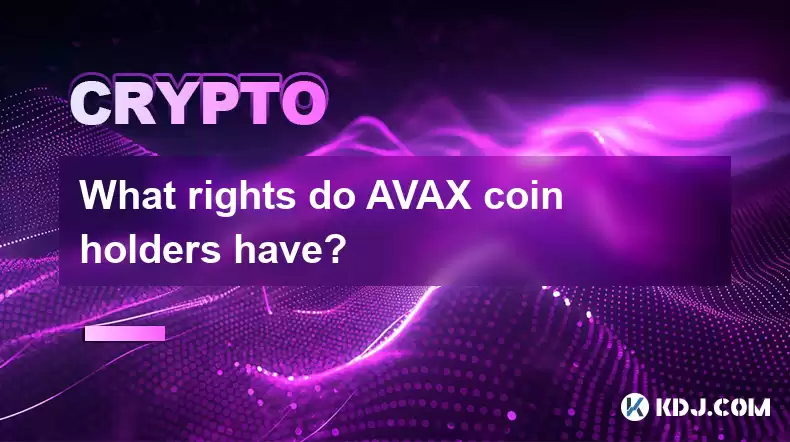-
 Bitcoin
Bitcoin $118900
-2.33% -
 Ethereum
Ethereum $4288
-0.13% -
 XRP
XRP $3.151
-3.21% -
 Tether USDt
Tether USDt $1.000
0.02% -
 BNB
BNB $809.5
-1.17% -
 Solana
Solana $175.7
-4.75% -
 USDC
USDC $0.0000
0.01% -
 Dogecoin
Dogecoin $0.2246
-5.75% -
 TRON
TRON $0.3473
2.19% -
 Cardano
Cardano $0.7809
-5.18% -
 Chainlink
Chainlink $21.38
-3.48% -
 Hyperliquid
Hyperliquid $43.29
-5.53% -
 Stellar
Stellar $0.4375
-3.21% -
 Sui
Sui $3.685
-6.68% -
 Bitcoin Cash
Bitcoin Cash $595.2
3.50% -
 Hedera
Hedera $0.2483
-6.60% -
 Ethena USDe
Ethena USDe $1.001
-0.01% -
 Avalanche
Avalanche $23.03
-5.28% -
 Litecoin
Litecoin $119.5
-5.02% -
 Toncoin
Toncoin $3.395
-0.07% -
 UNUS SED LEO
UNUS SED LEO $9.007
-1.19% -
 Shiba Inu
Shiba Inu $0.00001304
-5.44% -
 Uniswap
Uniswap $11.35
1.57% -
 Polkadot
Polkadot $3.898
-5.43% -
 Cronos
Cronos $0.1671
-0.16% -
 Ethena
Ethena $0.8121
-2.45% -
 Dai
Dai $1.000
0.02% -
 Bitget Token
Bitget Token $4.412
-1.73% -
 Monero
Monero $264.0
-0.64% -
 Pepe
Pepe $0.00001128
-8.12%
What rights do AVAX coin holders have?
Holding AVAX grants governance rights, staking rewards (transaction fees & AVAX), access to dApps, and transaction functionality within the Avalanche ecosystem; these rights may evolve with protocol development.
Mar 11, 2025 at 11:49 am

Key Points:
- AVAX holders have governance rights, allowing them to participate in shaping the future of the Avalanche network.
- Staking AVAX allows for transaction fee rewards and participation in consensus mechanism.
- Holding AVAX provides access to the Avalanche ecosystem's decentralized applications (dApps) and services.
- AVAX holders can use their coins for various transactions within the Avalanche network.
- The specific rights can evolve as the Avalanche protocol develops.
What Rights Do AVAX Coin Holders Have?
Holding AVAX, the native cryptocurrency of the Avalanche blockchain, grants several key rights and privileges within the rapidly expanding Avalanche ecosystem. These rights extend beyond simple ownership and involve active participation in the network's governance and functionality. Understanding these rights is crucial for any AVAX holder to maximize their involvement and potential returns.
Governance Rights:
One of the most significant rights afforded to AVAX holders is the ability to participate in the governance of the Avalanche network. This involves voting on crucial proposals that affect the protocol's development, upgrades, and overall direction. This participatory governance model ensures a decentralized and community-driven evolution of the platform. The more AVAX you hold, the more voting power you wield in these decisions.
Staking and Rewards:
Staking AVAX is a core mechanism of the Avalanche network, contributing to its security and stability. By staking their AVAX, holders become validators, helping to process transactions and secure the blockchain. In return for this service, stakers earn rewards in the form of transaction fees and newly minted AVAX. The amount of reward is generally proportional to the amount staked and the duration of the staking period. The process involves locking up your AVAX for a defined period, thus contributing to network consensus.
Access to the Avalanche Ecosystem:
Holding AVAX opens doors to a vibrant and expanding ecosystem of decentralized applications (dApps) and services built on the Avalanche blockchain. These dApps span various sectors, including DeFi, NFTs, and gaming. AVAX serves as the primary currency for interacting with these platforms, facilitating transactions, paying fees, and participating in various activities within each application. The ecosystem continues to grow, presenting numerous opportunities for AVAX holders.
Transaction Functionality:
AVAX is the fuel that powers transactions within the Avalanche ecosystem. It's used to pay for transaction fees, interact with smart contracts, and participate in various decentralized finance (DeFi) activities. The speed and low transaction costs of the Avalanche network make it an attractive platform for a variety of applications, directly benefiting AVAX holders through smoother and more efficient transactions. This makes AVAX essential for participating in any activity within the Avalanche ecosystem.
Evolving Rights:
It is important to note that the rights associated with AVAX ownership are not static. As the Avalanche protocol evolves and upgrades are implemented, the specific rights and functionalities available to AVAX holders may also change. Keeping abreast of these developments is crucial to fully understand and utilize the evolving potential of AVAX ownership. The Avalanche community actively engages in discussions and updates regarding these changes.
Potential Future Rights:
The Avalanche Foundation continually explores new ways to enhance the value proposition of AVAX. Future developments might include enhanced governance mechanisms, novel reward structures for staking, and even new utility functions integrated directly into the AVAX token. Staying informed about Avalanche's roadmap is key to understanding the potential for future rights and benefits associated with AVAX holdings.
Frequently Asked Questions:
Q: How do I stake my AVAX?
A: Staking AVAX typically involves using a staking provider or validator node, depending on your technical expertise and desired level of control. Many exchanges and wallets offer staking services, simplifying the process. Alternatively, you can run your own validator node, which requires more technical knowledge.
Q: What are the risks associated with staking AVAX?
A: Staking involves locking up your AVAX for a period, meaning you won't have immediate access to your funds. There's also a risk associated with validator slashing, where validators are penalized for misbehavior. Choosing a reputable staking provider can mitigate these risks.
Q: How much AVAX do I need to participate in governance?
A: The amount of AVAX needed to meaningfully participate in governance depends on the overall distribution and the number of other participants. Holding a larger amount of AVAX grants proportionally more voting power.
Q: Can I use my AVAX on other blockchains?
A: While AVAX is native to the Avalanche blockchain, its use is primarily confined to that ecosystem. Bridging to other chains might be possible through decentralized bridges, but it's crucial to understand the associated risks and fees.
Q: What are the fees involved in using AVAX?
A: Transaction fees on the Avalanche network are generally low compared to other blockchains. However, the exact fees vary depending on network congestion and the complexity of the transaction.
Q: How can I stay updated on changes affecting AVAX holders?
A: Stay informed by following official Avalanche channels, participating in community forums, and reading reputable cryptocurrency news sources covering Avalanche developments. The official Avalanche website is a key source of information.
Disclaimer:info@kdj.com
The information provided is not trading advice. kdj.com does not assume any responsibility for any investments made based on the information provided in this article. Cryptocurrencies are highly volatile and it is highly recommended that you invest with caution after thorough research!
If you believe that the content used on this website infringes your copyright, please contact us immediately (info@kdj.com) and we will delete it promptly.
- Dogecoin, Presale, Surge: Riding the Meme Coin Wave
- 2025-08-12 11:10:12
- Dogecoin, Tron, and the ROI Reality Check: What's a Crypto Investor to Do?
- 2025-08-12 11:15:12
- Ethereum Layer-2 Scaling Competition Heats Up as ETH Breaks $4K
- 2025-08-12 10:30:12
- China Regulation, Stablecoins, and BNB Presale: Navigating the Crypto Landscape
- 2025-08-12 11:30:12
- Meme Coins, Investment, and Token Burns: What's Hot in 2025?
- 2025-08-12 10:30:12
- BlockDAG, Chainlink, Hedera: The Cryptos Enterprises are Eyeing
- 2025-08-12 09:30:12
Related knowledge

How to purchase Aragon (ANT)?
Aug 09,2025 at 11:56pm
Understanding Aragon (ANT) and Its PurposeAragon (ANT) is a decentralized governance token that powers the Aragon Network, a platform built on the Eth...

Where to trade Band Protocol (BAND)?
Aug 10,2025 at 11:36pm
Understanding the Role of Private Keys in Cryptocurrency WalletsIn the world of cryptocurrency, a private key is one of the most critical components o...

What is the most secure way to buy Ocean Protocol (OCEAN)?
Aug 10,2025 at 01:01pm
Understanding Ocean Protocol (OCEAN) and Its EcosystemOcean Protocol (OCEAN) is a decentralized data exchange platform built on blockchain technology,...

Where can I buy UMA (UMA)?
Aug 07,2025 at 06:42pm
Understanding UMA and Its Role in Decentralized FinanceUMA (Universal Market Access) is an Ethereum-based decentralized finance (DeFi) protocol design...

How to buy Storj (STORJ) tokens?
Aug 09,2025 at 07:28am
Understanding Storj (STORJ) and Its Role in Decentralized StorageStorj is a decentralized cloud storage platform that leverages blockchain technology ...

Where to find the best price for Audius (AUDIO)?
Aug 11,2025 at 04:01pm
Understanding the Basics of Ethereum StakingEthereum staking refers to the process of locking up ETH tokens to support the security and operations of ...

How to purchase Aragon (ANT)?
Aug 09,2025 at 11:56pm
Understanding Aragon (ANT) and Its PurposeAragon (ANT) is a decentralized governance token that powers the Aragon Network, a platform built on the Eth...

Where to trade Band Protocol (BAND)?
Aug 10,2025 at 11:36pm
Understanding the Role of Private Keys in Cryptocurrency WalletsIn the world of cryptocurrency, a private key is one of the most critical components o...

What is the most secure way to buy Ocean Protocol (OCEAN)?
Aug 10,2025 at 01:01pm
Understanding Ocean Protocol (OCEAN) and Its EcosystemOcean Protocol (OCEAN) is a decentralized data exchange platform built on blockchain technology,...

Where can I buy UMA (UMA)?
Aug 07,2025 at 06:42pm
Understanding UMA and Its Role in Decentralized FinanceUMA (Universal Market Access) is an Ethereum-based decentralized finance (DeFi) protocol design...

How to buy Storj (STORJ) tokens?
Aug 09,2025 at 07:28am
Understanding Storj (STORJ) and Its Role in Decentralized StorageStorj is a decentralized cloud storage platform that leverages blockchain technology ...

Where to find the best price for Audius (AUDIO)?
Aug 11,2025 at 04:01pm
Understanding the Basics of Ethereum StakingEthereum staking refers to the process of locking up ETH tokens to support the security and operations of ...
See all articles

























































































